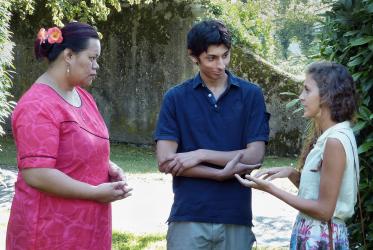Displaying 1 - 8 of 8
“European solidarity must be strengthened”
29 October 2015
Churches to be more inclusive of persons with disabilities
16 October 2014
Youth build multi-faith community in Bossey
28 August 2013





